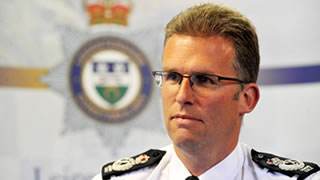Extremism plans may create 'thought police', warns police chief

The police lead for the government's anti-radicalisation programme has warned that plans to tackle 'extremism' may lead to the creation of 'thought police'. His comments follow the unveiling of the counter-extremism bill last Wednesday.
At the time of the government's publication of its 'Counter-Extremism Strategy' in October, Christian Concern's Chief Executive, Andrea Williams, described the strategy as "severely flawed", and in particular warned of the threat it poses to Christian freedoms.
Now adding to a large and ever-growing number of groups and individuals who have criticised the government's plans, Simon Cole of the Prevent strategy believes the lack of clarity surrounding the measures could lead to police effectively judging "what people can and cannot say".
'Challenging to enforce'
Simon Cole said that several other senior police officers have expressed reservations concerning the proposals, which aim to "tackle extremism in all its forms".
A clear definition of what constitutes 'extremism' has yet to be provided.
"Unless you can define what extremism is very clearly then it's going to be really challenging to enforce," Cole said.
"We don't want to be the thought police, we absolutely don't want to be the thought police."
'Needs really clearly defining'
The measures set out by the government are primarily designed to counter the threat of terrorism from radical Islamists, but extend to anyone seen to be challenging 'British', or as last week quoted 'liberal', values.
Prime Minister David Cameron said in a foreword to the Queen's speech last week: "So this Queen's speech stands up for our liberal values by taking on the extremists with new powers to disrupt their activities, while protecting young people in unregulated schools from those who preach a message of intolerance and separatism."
Simon Cole believes the definition of our nation's values is still too unclear to be workable.
When asked if he was concerned about the measures as they currently stand, he answered: "Yes, because the police need to be able to safeguard people without being drawn into a hugely contentious potential role about a kind of thought police control of what people can and cannot say.
"And that needs really clearly defining and it needs parliament to lay out what is and isn't acceptable."
Christian freedoms
Christian Concern has previously highlighted the risks the measures pose to Christian freedoms, including the freedom to express fundamental, scriptural claims such as the exclusivity of salvation through Jesus Christ, or for saying that the God of the Bible is not the same as the Allah of the Qur'an.
The Christian Legal Centre has already supported street preachers who have been arrested for preaching the gospel. Mike Overd of Taunton was convicted of a public order offence in March 2015 for preaching the 'wrong' Bible verse, when the judge ruled that he should not have used Leviticus 20 when explaining the biblical view of homosexuality.
Mike appealed the conviction, supported by the Christian Legal Centre, which was upheld in December 2015.
If Simon Cole's warning about 'thought police' were to be realised, Christian street preachers would be further restricted in what they are able to preach, and Christians everywhere will risk being penalised for uttering thoughts deemed 'extreme'.
Related Links:
Anti-radicalisation chief says ministers' plans risk creating 'thought police' (Guardian)
Concerns over Government 'counter-extremism' plans revived
Christian preacher wins appeal against 'wrong' Bible verse conviction
Government's Counter-Extremism Strategy 'flawed'
